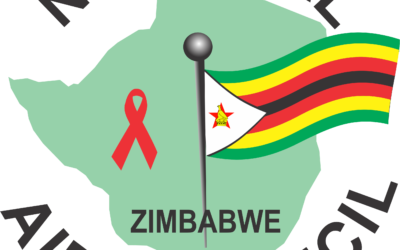
BY EVANS MATHANDA
Facebook used to be the most popular and affordable social network that brought people together across the globe despite the distance. It used to be more fun as compared to other social networks.
Some say the site is user-friendly.
However, things have changed, Twitter is now the most popular social network in Zimbabwe.
Statistics show that the micro-blogging site has become the most used social media platform in the country. But what is happening to Facebook?
Recently in October the Meta owned sites Facebook, Instagram and Messenger went down for users around the world.
The outage that began at around 5.30pm and lasted for about 12 hours caused a lot of commotion on social media.
The outage triggered more traffic after the Meta company announced on Twitter that their sites were down.
- Chamisa under fire over US$120K donation
- Mavhunga puts DeMbare into Chibuku quarterfinals
- Pension funds bet on Cabora Bassa oilfields
- Councils defy govt fire tender directive
Keep Reading
It was a technical problem that seems to have given Twitter more insights.
A decade ago, the Global Stats Counter revealed that there were 86% Facebook users in Zimbabwe while Twitter had 2% on both desktop and mobile social media statistics.
Facebook users increased by 12% in 2012 but Twitter decreased by 0.49% and many people joined Facebook between 2008 and 2013.
October 2021 global social media statistics shows that Facebook still has more users than Twitter.
But in Zimbabwe, Twitter has overtaken Facebook in terms of usage.
South African Kwaito and House producer Tlou Cleopas Monyepao, professionally known as DJ Cleo released his debut single song “Facebook” which made hits in 2012 and earned him three awards at 18th SAMA.
DJ Cleo’s song lyrics “Sizohlangana kuyi Facebook” (Lets meet on Facebook) influenced many people to join the site.
Probably that necessitated the growing numbers of ghost accounts.
That was then, now Twitter is taking a huge share.
Zimbabweans now use Twitter more than any other social network. Of course, WhatsApp is an easy way of communication that is used by many, but users can only connect provided they exchanged contact numbers.
Last year, Twitter users reached 23% by December while Facebook dropped to 29%.
Interestingly, Pinterest ended the year on top of all social media platforms. October 2021 Desktop and mobile social media stats in Zimbabwe revealed that Twitter is the most popular social network as compared to Facebook and other platforms.
Twitter currently has 43% users whereas Facebook has 35%.

Prominent politicians in Africa particularly Zimbabwe convey their messages to the public through Twitter in most cases.
Very few politicians are active on Facebook or other social networks.
The political crisis in Zimbabwe might have pushed some people to join the micro-blogging site Twitter to follow what politicians and other government official post online.
Unlike Facebook and Instagram, Twitter is less of individual social life but some burning issues like politics and rampant corruption are discussed on Twitter.
MDC Alliance president Nelson Chamisa has more than 800 000 followers on his Twitter handle @nelsonchamisa.
Chamisa likes to convey his message on Twitter, and some have labelled him a “Twitter president”.
Government officials like Ndabaningi Mangwana and George Charamba have been accused of acting as politicians on Twitter, a platform where they post a lot of Zanu PF propaganda.
Former minister Jonathan Moyo’s Tweets in exposing the bad governance in Zimbabwe have in several times triggered debates.
Prominent figures in Zimbabwe have attracted many people to use Twitter.
Now that there is Twitter Spaces, a new feature that allows users to have live audio conversations on the platform.
Twitter has become more interesting especially to those who are lazy to type.
Unlike Facebook, Twitter users can now host conversations in an audio chat room called a “Space” and invite other users to participate.
People like Hopewell Chino’no have hosted several Spaces since the new feature was introduced.
Probably this could have boosted the number of Twitter users in Zimbabwe.
Some say it’s easy to mobilise people on Twitter unlike any other social network. Twitter users can see what’s trending in various locations which makes it easy to join or follow the conversation.
The hashtags like #NgaapindeHakeMkomana, #EDTheGameChanger and #RegisterToVote2023 are more popular on Twitter than Facebook.
A lot of people have Facebook accounts but in terms of usage, Twitter is leading.
Some might have created Facebook accounts long ago but the accounts are no longer active.
In most cases, breaking news starts from Twitter going to Facebook and other social networks even though sometimes it can be vice versa.
One key issue about Twitter is that it does not have an edit button at the moment, after clicking the tweet button the only way to correct your post is to delete and repost again.
Zimbabweans have an interesting way of distinguishing things.
The term “Village” was coined to symbolise how people migrated from “Facebook village” to join the “City life” on Twitter.
The symbolic language conveys how Twitter is eating the bigger pie as compared to Facebook and other social networks.
Digital marketing became the only solution in this period of Covid-19 pandemic.
The digital space became the effective way of communicating to the public hence the sharp increase in social media usage globally.
Contrary, there have been calls by Zimbabwean citizens to reduce data prices but the Postal and Telecommunications Regulatory Authority of Zimbabwe revealed that mobile internet and data traffic increased by 7.2% to record 23,436 TB in the second quarter of 2021 from 21,865 Terabytes recorded in the first quarter of 2021.
Social media has become an “opium” of the majority where they can be destructed from the current economic turmoil in Zimbabwe.
- Evans Mathanda is a journalist and development practitioner who writes in his personal capacity. For feedback email: evanngoe@gmail.com or call 0719770038 and Twitter @EvansMathanda19










